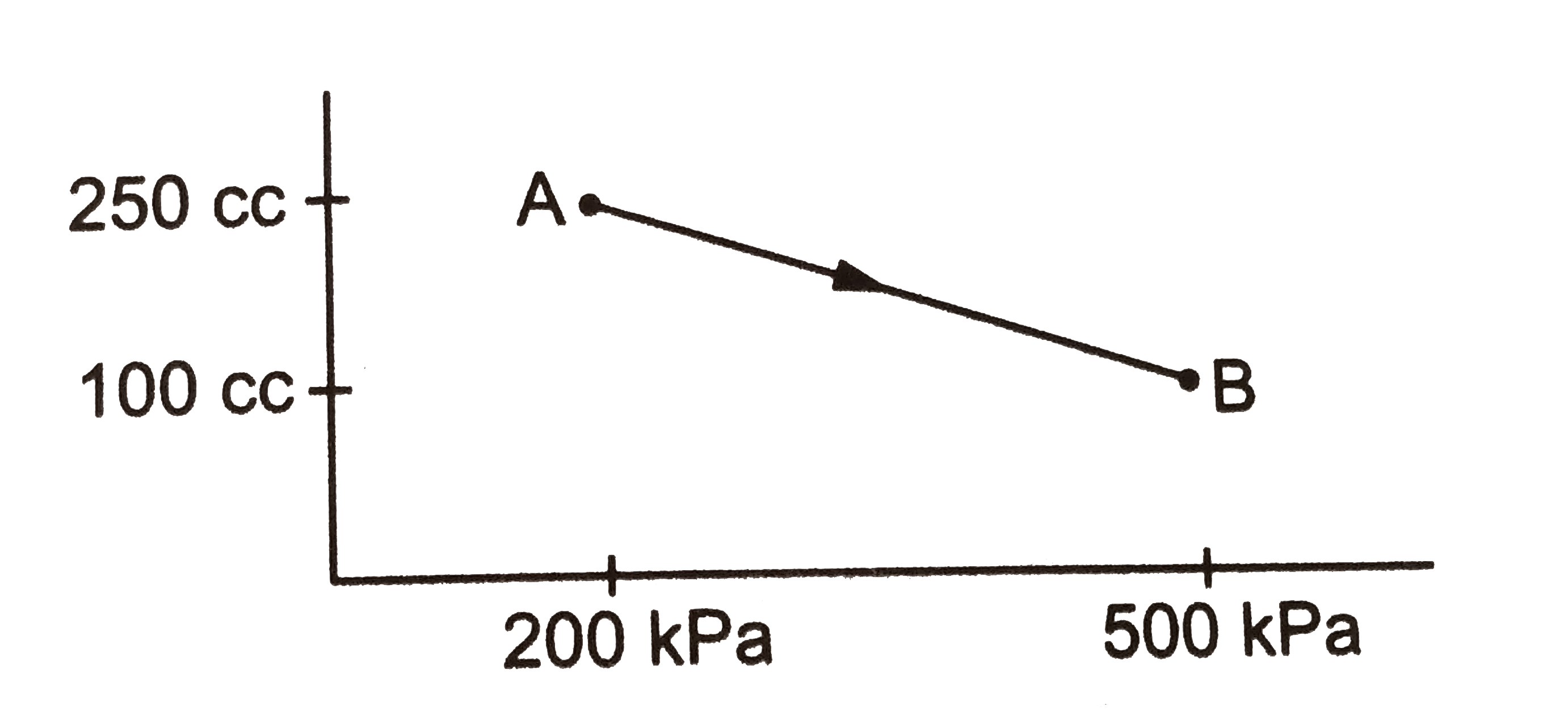A gas is contained in a vessel fitted with a movable piston. The container is placed on a stove. A total of 100 cal of heat is given to the gas and the gas does 40 J of work in the expansion resulting from heating. Calculate the increase in internal energy in the process.
To solve the problem, we will use the first law of thermodynamics, which states:
Q=W+ΔU
Where:
- Q is the heat added to the system,
- W is the work done by the system,
- ΔU is the change in internal energy of the system.
Step 1: Convert heat from calories to joules
We are given that the heat added to the gas is Q=100 calories. We need to convert this to joules. The conversion factor is:
1 calorie=4.184 joules
So,
Q=100 cal×4.184 J/cal=418.4 J
Step 2: Identify the work done by the gas
The work done by the gas during expansion is given as W=40 J.
Step 3: Use the first law of thermodynamics
Now we can substitute the values of Q and W into the first law equation:
Q=W+ΔU
Substituting the known values:
418.4 J=40 J+ΔU
Step 4: Solve for the change in internal energy
Rearranging the equation to solve for ΔU:
ΔU=Q−W
Substituting the values:
ΔU=418.4 J−40 J=378.4 J
Conclusion
The increase in internal energy of the gas during the process is approximately:
ΔU≈378.4 J
- Q is the heat added to the system,
- W is the work done by the system,
- ΔU is the change in internal energy of the system.
We are given that the heat added to the gas is Q=100 calories. We need to convert this to joules. The conversion factor is:
The work done by the gas during expansion is given as W=40 J.
Now we can substitute the values of Q and W into the first law equation:
Rearranging the equation to solve for ΔU:
The increase in internal energy of the gas during the process is approximately:
Topper's Solved these Questions
Similar Questions
A system does 100J work on surroundings by absorbing 150J of heat. Calculate the change in internal energy.
View SolutionA gas is enclosed in a cylindrical vessel fitted with a frictionless piston.the gas is slowly heated for some time. During the process, 10 J of heat is supplied and the piston is found to move out 10cm. Find the increase in the internal energy of the gas, the area of cross section of the cylinder=4cm2 and the atmospheric pressure =100kPa.
View Solution
Knowledge Check
Assertion : In an isothemal expansion the gas absorbs heat and does work .
Reason: In an isothermal process there is no change in internal energy of an ideal gas.ABoth assertion and reason are true and reason is the correct explanation of assertionBBoth assertion and reason are true but reason is not the correct explanation of assertionCAssertion is true but reason is falseDBoth assertion and reason are false.
In thermodynamic process, 200 Joules of heat is given to a gas and 100 Joules of work is also done on it. The change in internal energy of the gas is
View Solution5g of a gas is contained in a rigid container and is heated from 15∘C→25∘C . Specific heat capacity of the gas at constant volume is 0.172calg−1^∘C−1 and the mechanical equivalent of heat is 4.2 J cal . Calculate the change in the internal energy of the gas.
View SolutionA diatomic gas (γ=1.4) does 200 J of work when it is expanded isobarically. Find the heat given to the gas in the process.
View SolutionA gas is taken along the path AB as shown in fig, if 70 cal of heat is extracted from the gas in the process, calculate the change in the internal energy of the system.

View SolutionWhen an ideal gas is heated at constant pressure, the fraction of the heat energy supplied whicn increases the internal energy of the gas is :
View SolutionWhen an ideal diatomic gas is heated at constant pressure fraction of the heat energy supplied which increases the internal energy of the gas is
View SolutionThe work done by 100 calorie of heat in isothermal expansion of ideal gas is :-
View Solution
